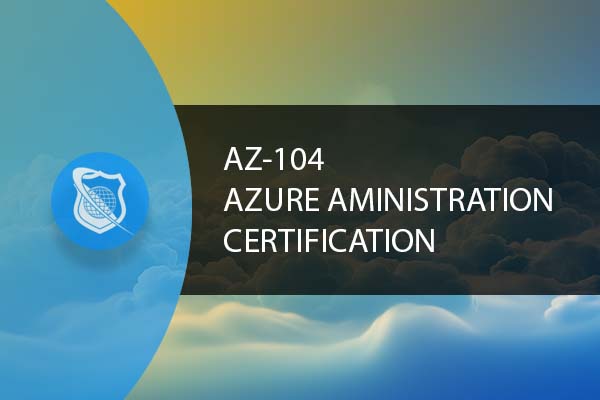In this blog, we will provide you with the key features to compare Amazon s3 vs Microsoft Azure. Amazon S3 (Amazon Simple Storage Service) is a cloud storage service provided by Amazon Web Services (AWS), while Microsoft Azure Blob Storage is a similar cloud storage service provided by Microsoft Azure. Here’s a comparison of key features between the two:
Amazon S3 Key Features:
- Scalability: S3 offers virtually unlimited storage, and you can seamlessly scale up or down based on your needs.
- Data Durability and Availability: S3 provides high durability and availability by replicating data across multiple availability zones.
- Data Lifecycle Management: S3 allows you to set up data lifecycle policies to automatically transition or delete objects based on specified rules.
- Access Control: S3 offers fine-grained access control using IAM policies, bucket policies, and access control lists (ACLs).
- Data Encryption: S3 supports both server-side and client-side encryption to ensure data security.
- Versioning: S3 allows you to enable versioning for objects, which helps in maintaining historical data.
- Cross-Region Replication: You can replicate data between different AWS regions for disaster recovery or compliance.
- Event Notifications: S3 can trigger events based on actions like object creation, deletion, or restoration, integrating with other AWS services.
- Performance: S3 supports high-performance read and write operations for large-scale data sets.
- Storage Classes: S3 offers different storage classes, including Standard, Intelligent-Tiering, Glacier, and more, allowing you to optimize costs based on access patterns.
Learn, Compare & Choose Your Cloud Environment
ITU offers you a great training series designed to give you the knowledge to understand, work with and choose the right service for your enterprise cloud environment. This training series covers, Azure, Amazon Web Services and Google Cloud
Microsoft Azure Blob Storage Key Features:
- Scalability: Azure Blob Storage offers scalable object storage with the ability to handle massive amounts of data.
- Data Durability and Availability: Blob Storage provides high durability and availability through data replication.
- Access Control: Azure Blob Storage integrates with Azure Active Directory and offers role-based access control (RBAC).
- Data Encryption: Blob Storage supports server-side encryption and offers options for managing encryption keys.
- Data Lifecycle Management: You can use lifecycle management policies to automate data movement and deletion based on defined rules.
- Versioning: Blob Storage supports versioning for objects, similar to Amazon S3.
- Cross-Region Replication: Azure offers Geo-Replication for replicating data between regions.
- Event Grid Integration: Azure Blob Storage can trigger Azure Event Grid events, enabling event-driven architectures.
- Performance: Blob Storage offers high-throughput, low-latency performance for data-intensive workloads.
- Storage Tiers: Azure provides different storage tiers, such as Hot, Cool, and Archive, allowing you to optimize costs based on data access patterns.
Both Amazon S3 and Microsoft Azure Blob Storage are highly capable cloud storage services, offering a range of features to meet various storage and data management needs. The choice between them often depends on factors such as existing cloud platform preferences, integration with other services, and specific requirements of the application or organization.

Get Certified To Administer Your Azure Platform
This extensive course provides you with the knowledge you need to ensure you are successfully administering your Microsoft Azure Cloud Platform.
Key Factors To Consider When Choosing Amazon S3 vs Microsoft Azure
Deciding between Amazon S3 and Microsoft Azure for your cloud storage needs involves considering several key factors. Here are some important considerations to help you make an informed decision:
- Cloud Provider Familiarity: If your organization is already using AWS extensively or is more familiar with the AWS ecosystem, Amazon S3 might be a more natural choice. Similarly, if you’re already invested in the Microsoft ecosystem, Azure Blob Storage could be preferable.
- Integration with Other Services: Consider the other cloud services you plan to use alongside storage. AWS and Azure offer various services like compute, analytics, machine learning, and more. Choose the platform that provides seamless integration with your desired services.
- Pricing Model: Evaluate the pricing structures of both platforms. Each has its own pricing model based on factors such as storage, data transfer, and request costs. Compare your anticipated usage patterns to estimate costs accurately.
- Data Transfer and Latency: Consider the geographical distribution of your users and the locations of the cloud data centers. Choose the platform that can provide lower latency and faster data transfers for your target audience.
- Performance Requirements: Depending on your workload, performance might be crucial. Evaluate the performance benchmarks of both platforms for your specific use case, especially if you have data-intensive or real-time applications.
- Data Management Needs: If you require advanced data management features such as data archiving, lifecycle policies, data versioning, and data replication, assess how well each platform meets these needs.
- Security and Compliance: Examine the security features and compliance certifications offered by both platforms. Consider which one aligns better with your organization’s security and regulatory requirements.
- Availability and Durability: Look into the availability guarantees and data durability of each platform. Both Amazon S3 and Azure Blob Storage offer high availability and durability, but specific SLAs may differ.
- Development and Support: Consider the development tools, SDKs, documentation, and support provided by each platform. Choose the one that best aligns with your development team’s expertise and requirements.
- Vendor Lock-In: Evaluate the potential vendor lock-in associated with your choice. Consider how easily you could migrate your data and applications to another platform if needed.
- Community and Ecosystem: Examine the communities, forums, and resources available for each platform. A robust community can provide valuable support and resources.
- Future Growth and Strategy: Consider your organization’s long-term cloud strategy. Choose the platform that aligns with your future growth plans and technology roadmaps.
Ultimately, the decision between Amazon S3 and Microsoft Azure Blob Storage will depend on your organization’s unique needs, existing technology stack, budget constraints, and overall cloud strategy. It’s advisable to conduct a thorough evaluation, possibly including pilot projects, to determine which platform best meets your requirements.
Header Title : Amazon S3 vs Microsoft Azure: Comprehensive FAQ Guide
What are the key differences between Amazon S3 and Microsoft Azure Storage?
Amazon S3 and Microsoft Azure Storage both offer robust cloud storage solutions, but they differ in certain aspects. Amazon S3 excels in scalability, offering unlimited storage space with a pay-as-you-go model, making it ideal for businesses of all sizes. It is highly reliable, providing 99.999999999% durability. Microsoft Azure Storage, on the other hand, offers a more integrated environment for Microsoft-based enterprises, with seamless compatibility with Microsoft applications and services. Azure also provides a variety of storage options, including Blob storage for unstructured data, File Storage for SMB-based file shares, and more, catering to different needs.
How does pricing compare between Amazon S3 and Microsoft Azure Storage?
Pricing between Amazon S3 and Microsoft Azure Storage varies based on usage, data transfer, and additional features like data retrieval times and geographic location of the data centers. Amazon S3 uses a tiered pricing model that charges based on the amount of data stored, requests made, and data transferred out of S3. Microsoft Azure Storage also follows a pay-as-you-go model but factors in the type of storage, redundancy options, and network data transfer costs. Both platforms offer cost-calculator tools to estimate expenses, but overall costs can be highly specific to individual usage patterns and requirements.
Which is more secure, Amazon S3 or Microsoft Azure Storage?
Both Amazon S3 and Microsoft Azure Storage place a strong emphasis on security. Amazon S3 offers comprehensive security features such as bucket policies, ACLs (Access Control Lists), and encryption options for data at rest and in transit. Microsoft Azure Storage provides similar levels of security, including role-based access control, encryption, and network security features like Azure Private Link. The choice between the two often comes down to specific security needs and compliance requirements of the organization, as both platforms are equipped to handle stringent security demands.
Can I migrate data easily between Amazon S3 and Microsoft Azure Storage?
Migrating data between Amazon S3 and Microsoft Azure Storage is feasible, with both platforms offering tools and services to facilitate the process. Amazon provides the AWS DataSync and S3 Transfer Acceleration for efficient data transfer, while Microsoft offers Azure Data Box and Azure Blob Storage’s Data Movement library to streamline migrations. However, the ease and cost of migration can depend on the volume of data and network configurations. It’s recommended to plan thoroughly and potentially use third-party migration services for large-scale transfers.
Which platform is better for global data distribution, Amazon S3 or Microsoft Azure Storage?
Both Amazon S3 and Microsoft Azure Storage offer global data distribution capabilities to ensure data is accessible worldwide with low latency. Amazon S3’s global infrastructure is vast, with data centers in numerous regions around the world, facilitating easy replication and distribution of content via Amazon CloudFront. Microsoft Azure Storage also offers a wide-reaching global presence, with the Azure Content Delivery Network (CDN) providing a similar level of global content distribution. The choice between the two might depend on specific geographic needs, existing infrastructure, and integration requirements.

























